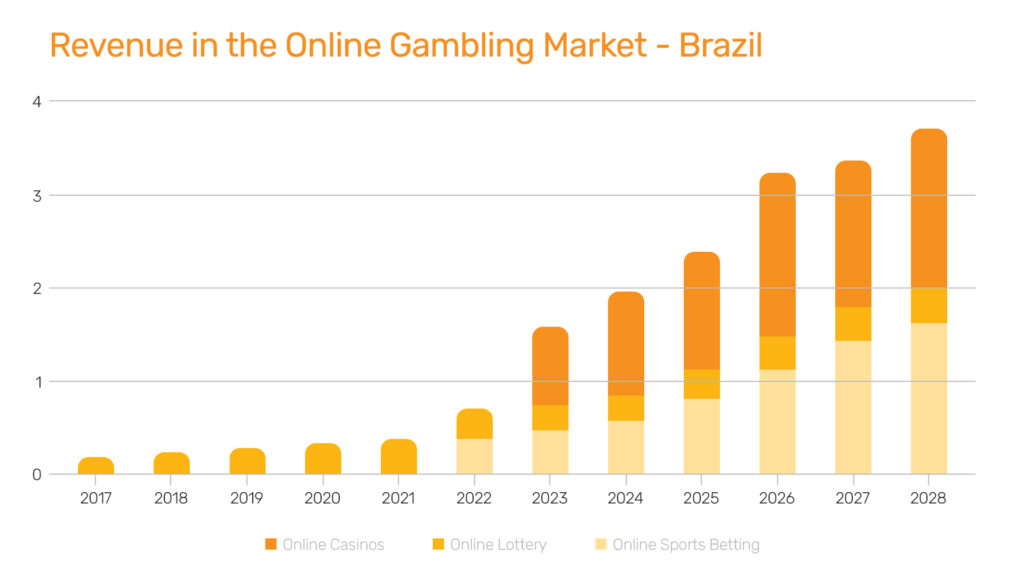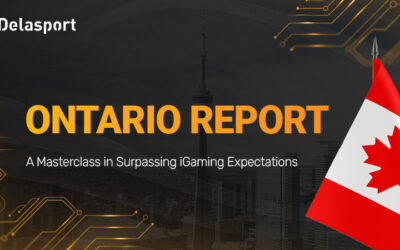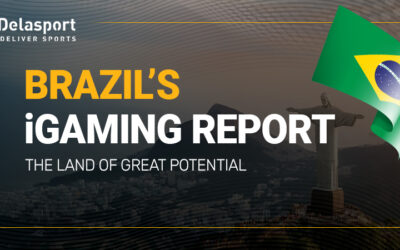
In the past, we’ve outlined Brazil as a sleeping giant and the big news this year is that the giant has awakened. The country’s president, Luiz Inacio Lula da Silva, made regulation in Brazil official, ratifying a new regulatory framework for sports betting and iGaming in general.
The very end of 2023 – December 30th – marked a new era in Brazil’s gambling history. Bill 3,626/2023 was signed after Brazil’s chamber of deputies voted on 21 December to endorse it.
The bill presented a rollercoaster for everyone in the iGaming industry, eagerly waiting to see how the chain of events in the sector will unfold. One of the major suspense sources was the fact that iGaming was added back into the bill after previously being removed by the senate.
The New Market Situation in Brazil
The market has already started seeing a surge, which is understandable bearing in mind that up until now the legal activities were made up primarily of lotteries and horse racing. The increase in revenue projected for this year is a whopping 24,1% (Source). It is estimated to reach US$1.97bn by the end of 2024 and US$3.63bn by 2028. This means the Brazilian iGaming market will keep a steady growth rate of 16.51% per year.

As can be expected, Online Casinos will experience the most substantial growth as they are just now becoming legalized: the projected market volume for this segment is US$1.11bn this year. By 2028, however, experts foresee sports betting taking over the leading spot with US$1.71bn, followed by Online Casinos with US$1.61bn. and lotteries with US$0.31bn.
The New Framework in Brazil
The ratified regulations bring along a section regarding taxes on iGaming. According to those, operators will be taxed at 12% of the GGR. Recommendations regarding taxes were submitted by the Economic Affairs Commission in November 2023.
Operators will also have to apply for five-year licenses with up to three brands. They will have to pay around US$6m per such license.
Something else operators will have to do according to the new legal framework is comply with a number of Responsible Gambling guidelines. They should offer customers self-exclusion windows that range from 24 hours to six weeks and verify the identities of players. They should make sure through facial recognition that the bettors are at least 18 years of age. Another key requirement – this time outside of the RG scope – is for the company to have a Brazilian board member who will hold at least 20% of the shares.
Players, on the other hand, will have to pay 15% of their winnings in tax.
Opportunities And Hurdles in Brazil’s Sports Betting Landscape
The sports betting sector in Brazil presents numerous prospects for operators, consumers, and stakeholders alike. These encompass:
– A varied and fiercely competitive sports landscape, offering a plethora of local and international events and leagues for betting.
– Abundant room for innovation and distinction, with avenues to introduce fresh products, services, features, and promotional strategies to allure and retain clientele.
– A conducive legal framework, supported by governmental backing and a clear roadmap for regulation and taxation.
– A sizable and expanding demographic of sports enthusiasts and punters, boasting substantial disposable income and widespread internet access.
Nonetheless, there exist several challenges and risks necessitating attention. Among these are:
– Intense competition, marked by both established entities and emerging players striving for market dominance and customer allegiance.
– Heightened social responsibility demands, involving the promotion of responsible gambling, safeguarding vulnerable demographics, and mitigating gambling addiction risks.
– Elevated instances of fraud and malpractice, encompassing risks associated with money laundering, match-fixing, illicit gambling, and cyber breaches
– A convoluted and unpredictable regulatory process, characterized by delays and alterations that could impact the profitability and longevity of operators.
What’s to Come for Brazil’s iGaming Market
While the exciting news is a fact, there are still a few steps left before they come into effect. For example, some of the topics in the Bill will be put to public consultation before they are implemented, so the truly regulated market is expected to be here in the second half of this year.
Aside from the expected revenue growth, for a giant as Brazil the regulations mean numerous other consequences. Some of them are due to the expected surge of foreign operators applying and functioning in this hot jurisdiction.
This, in turn, means more work for the Brazilian courts as it is inevitable for bettors to fight for their rights domestically when they encounter an unethical iGaming business. As the anticipation for these regulations has been rising since 2018, a lot of operators’ business plans include Brazil, and this has already started translating in heightened requests for partnerships and mergers.
Fortunately, this process can be sped up with the help of strong partners like Delasport. As a supplier with GLI 19 and 33 certifications, Delasport is ready to enter Brazil with serious operators who know the importance of having the right certified technology partner.
To learn more and expedite your go-to-market for Brazil, get in touch right away.


